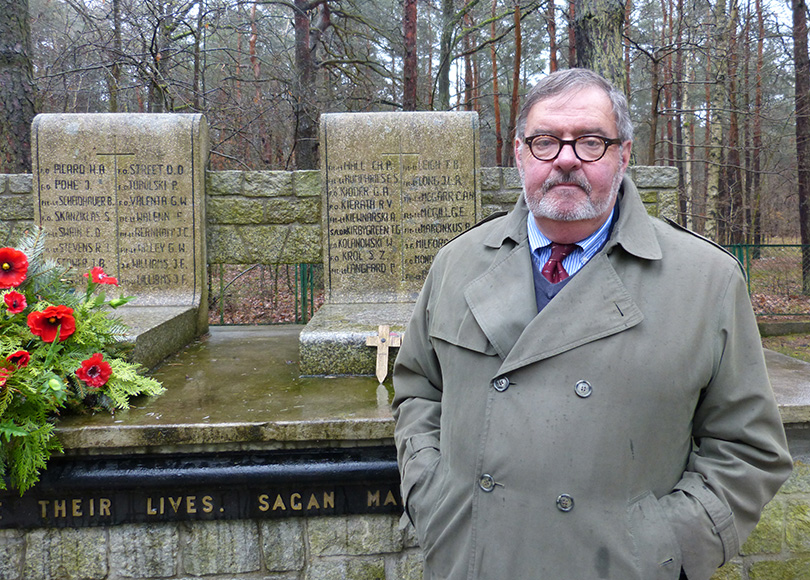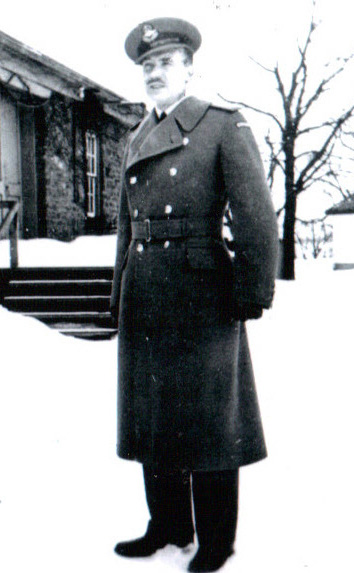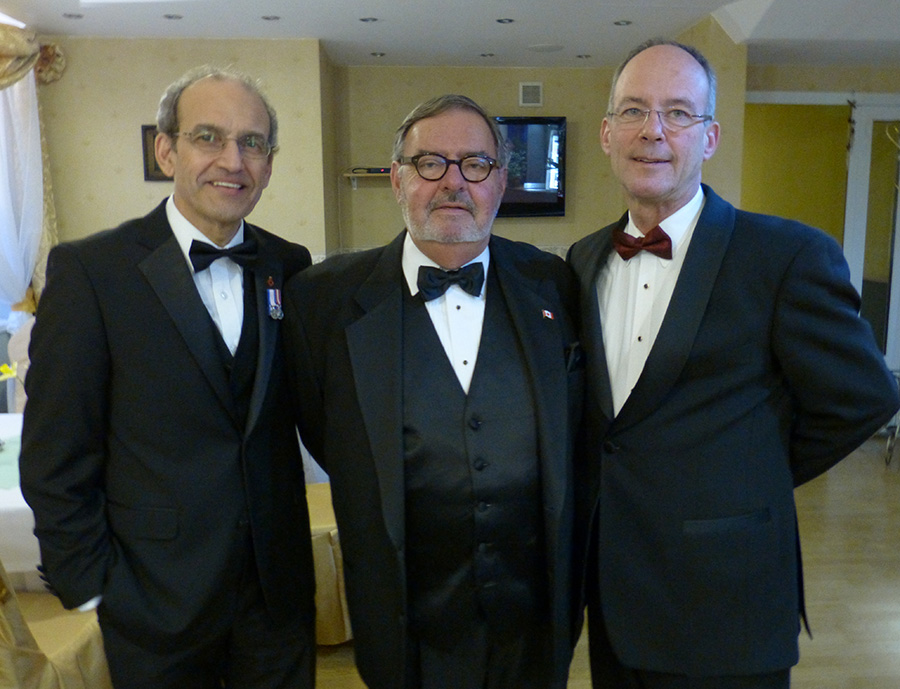
Returning home from a recent tour of European battlefields with students, I opened my phone to clear a backlog of emails. There was the usual collection of greetings, ads and enticements. Then, a subject line caught my eye.
“Bring Gord Kidder home!” it said.
Because it had an advertisement feeling to it, I got irritated. Why was my friend Gord Kidder being used in some sort of pitch?
“While Gord Kidder was in Europe recently to take part in ceremonies to honour his uncle, who was a POW in WWII,” the content continued, “he suffered a cerebral haemorrhage…”
I wondered how whoever the writer was, got hold of Kidder’s personal information. I knew Gord had gone overseas to participate in the 75th anniversary of the Great Escape at Zagan, Poland. In fact, Gord, Mark Christoff and I had made the same pilgrimage together in 2014 on the 70th anniversary. But what was this about having a stroke? And how did somebody get Gord’s personal information and spin it into an appeal for money?
“Unfortunately, Gord does not have out-of-country health care insurance,” the email continued, and I could see the punch line coming, “so expenses continue to accrue.”
And I dismissed the whole thing as a phishing scam. But just before I did, I noted it was labelled GoFundMe and I fired off a note to Gord and his wife Pat in Muskoka to make sure he was OK. And I promptly forgot about it, until about a week later when, back in Canada, I received an email from someone I didn’t know.
“My name is Bob Nelson,” the note began. “I am a friend of Gord Kidder. I am writing you in the hope that you may be in a position to assist Gord.”
Bob, one of Gord’s childhood friends, went on to describe exactly the same scenario as the GoFundMe email – that Gord had gone to Poland to pay tribute to his uncle, who was one of the Great Escapers executed by the Nazis in 1944 – and I suddenly realized, in this case the GoFundMe note had not been a hoax, that at least in this instance, it was a legitimate appeal to family, friends and strangers to help raise money to fly Gord home.

A bit of context. Gordon Kidder, the uncle, was from St. Catharines. In the 1930s, Gordon studied language at U of T; in fact, in 1937, Johns Hopkins University in the U.S. offered him a scholarship to complete a master’s degree in German, but he took a job at an insurance company translating. When the war broke out, the RCAF streamed him to become a navigator; in 1942, he was shot down, captured and imprisoned at Stalag Luft III near Zagan, Poland.
Since he could speak European languages with ease, in the prison camp, he conducted street-language training (disguised as “culture appreciation” sessions) among those involved in the Great Escape. Captured again after the escape on March 24/25, 1944, he was executed by Gestapo thugs.
So, Gord never met the man for whom he was named, but has always felt compelled to return to the site of his uncle’s greatest wartime service. So, when I called Pat Kidder to confirm Gord’s situation, I learned this GoFundMe campaign was legitimate.
Not all are. While they have emerged as a way of assisting those facing enormous health-care bills, foreclosures on their homes, or devastation in natural disasters, crowdfunding websites have also attracted criminals. There’s the famous example from last year: A homeless Marine veteran allegedly spent his last $20 helping a couple who’d run out of gas get home; the couple returned the favour by initiating a GoFundMe campaign to get the vet an apartment and a car. The plea went viral and donors contributed more than $400,000 to the cause. The vet and the couple squabbled over the money and the whole thing unravelled as a fraud.
That’s not the case with the “Bring Gord Kidder home” initiative. Gord’s daughter has gone to Prague, Czech Republic, to be with her father, still in a coma. His wife Pat has pleaded with federal, provincial and municipal leaders for some guidance and assistance. To no avail. And friends, including Karen Watkinson, who initiated the GoFundMe account, have sought out exit plans – private pilots, mercy flight agencies, the military – to get Gord med-evacuated home.

For those who sense a calling to assist, I read that a GoFundMe campaign should answer three vital questions: Is the purpose of the campaign clearly stated? How is the campaign organizer connected? Are family/friends donating and leaving supportive comments? Is there a clear path of donations to the intended recipient? I’ve tried to illustrate that here.
My intention is to raise awareness only, but I also feel strongly that the Kidder family should not have to endure pain for honouring a Canadian hero.
Could the method for sending donations be made more clear , please . A bank ?
To whom should the donation safely be made ? Thankyou .